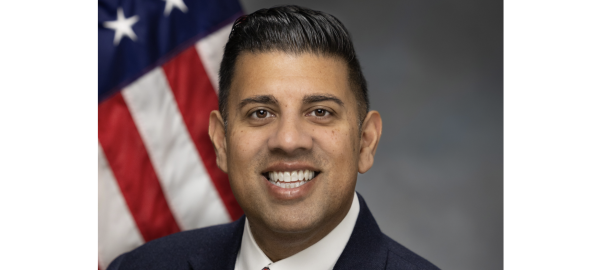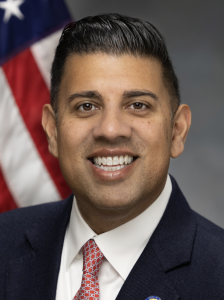
It’s Time to Stop Identity Theft In New York
If you’ve ever had your identity stolen, you know the trauma and sleepless nights that follow. One day everything looks normal and then suddenly a loan shows up on your credit report that you never applied for. Your bank flags suspicious withdrawals. Maybe a notice arrives saying you have already filed for unemployment, but you didn’t. And now you’re forced to embark on a seemingly endless struggle to clean up a mess that you didn’t create.
In the first three months of last year alone, more than 70,000 New Yorkers reported identity theft or fraud—and that number leaves out the thousands who never reported their cases or are unaware their information has been compromised.
The systems we use for security such as passwords, ID uploads, and security questions were built for a different era. They can be easily bypassed if a bad actor is skilled and determined. All they need to do is guess a few personal details, forge a basic document, or spin up a fake image using AI. Our security tools haven’t kept up with the threat.
That’s why I wrote new legislation (S6130) which lays the foundation for state agencies to utilize more secure, effective systems for managing personal security. This bill would allow New York State to take advantage of new and emerging technologies that streamline the process for identity verification, all while providing greater protections against identity theft for New Yorkers.
One of these new and emerging technologies is facial recognition. Instead of uploading documents or answering questions, a person can take a quick selfie and within seconds the system could check it against their DMV photo and confirm that it’s a match. With systems like these, no data leaves the DMV’s secure network and no personal information gets exposed to potential bad actors. Most importantly, this identity verification is only done with the consent of the user. In other words, if a New Yorker does not want to verify their identity using facial recognition, they can verify the old-fashioned way by uploading documents or in-person.
Other states have already put technology like this to work. Georgia’s Department of Driver Services uses it to process online address changes and password resets. Since 2024, they’ve completed more than 630,000 transactions, improving efficiency and the user experience of their residents. In Wisconsin, DMV officials used it to flag and investigate multi-state fraud operations. In Nevada, the system was deployed by the Secretary of State’s Office to protect against identity theft.
Now New York, a state that has long prided itself on innovation and consumer protection, has the opportunity to lead with a solution that is both secure and fair.
My legislation includes some of the most robust privacy safeguards in the country. Any company being contracted must be U.S.-based and meet strict technical and ethical standards. All data remains inside the agency’s firewall. And the underlying technology must pass rigorous performance and fairness testing, including evaluation by the National Institute of Standards and Technology.
This is especially important for vulnerable populations. The people most often harmed by identity fraud are not corporations or well-connected insiders. They are everyday New Yorkers: families applying for housing assistance, seniors accessing benefits, job seekers trying to verify their credentials. These residents are being asked to navigate outdated systems that often create more obstacles than protections.
Technologies like facial recognition could simplify this process, reduce errors, increase access, and restore trust in the State’s identity verification processes.
For New Yorkers, this means shorter wait times, less paperwork, and fewer opportunities for fraudsters to intervene. For state agencies, it means more accurate records, better fraud detection, and real cost savings. For private businesses, including banks, car rental companies, and online platforms it means stronger protections and a more seamless experience for legitimate users.
We already have the technology. What we need now is the will to act. New Yorkers deserve a system that puts security and simplicity in their hands and takes power away from the fraudsters who thrive on outdated tools.
Jeremy Cooney represents the 56th District in the New York State Senate.

